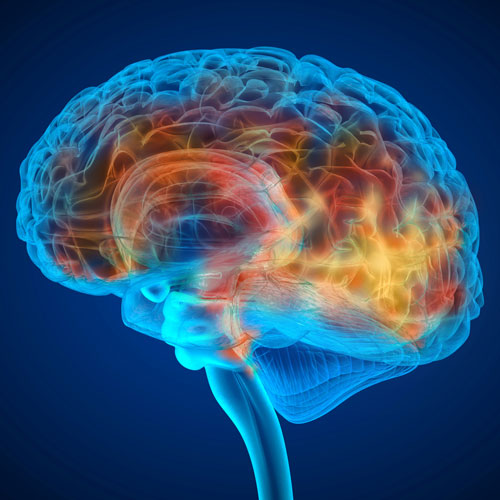Blogs
Can Chiropractic Care Support Mental Health?

Mental health is beginning to gain traction as a valid, verifiable area of study and care in the modern age, but for decades, mental health was bypassed for other, more tangible therapies and forms of medical intervention.
Now, it is estimated that 1 in 5 American adults will experience a mental health illness in any given year and that 1 in 5 children will experience a debilitating mental illness in their lifetime.
With the continued increase of technology use and engagement with social media, easily accessible and binge-able entertainment series, and the ever-increasing need to work remotely and stay in touch with work even off-the-clock, our digital devices play a role in contributing to stress and straining mental health.
The accessibility, ease, and efficiency that technology creates always work counter purposefully to increase burnout, overstimulation, and frenetic mental activity. With these challenges to mental health, health, and wellness interventions are more important than ever.
Fortunately, chiropractic care is one of the many therapeutic modalities available to help decrease stress, support the body, and ultimately, aid and bolster the health of the mind.
The #1 Threat to Mental Health: Stress
It is important to recognize that the number one factor which compromises mental health is stress. Stress can manifest in many forms as a product of many types of interactions and environments.
Both physical and mental stressors are often interrelated and bidirectional, sharing a positive relationship. This means that as one increases, the other increases, too.
Physical Stress
Physical stress may occur as the result of an accident or injury, as the result of a series of regular activities that are lifestyle related, or as the result of illness. Certain jobs create a propensity for physical stress.
These jobs may be completely different: for example, a sedentary desk job can place as much (or more) physical stress on the body as actively working in construction, painting, yoga, fitness instruction, etc.
As always, stress is highly individualized to each person’s unique situation. In some instances, a desk job can be very low with regard to physical stress due to excellent workplace ergonomics.
In other offices, however, ergonomic setups may be very poor or completely non-existent, forcing the physical body into unbalanced positions. The physical strain that results from this type of environment is difficult to quantify, but strained eyesight, back pain, neck pain, wrist pain, headaches or migraines, shallowing breathing, and irregular heart rate are just some of the possible physical outcomes.
The same concept applies to all physical environments and stress—stress is very individualized, and the setup, mood, ease of access, and any personal predispositions all place a role in how each environment affects each individual. Physical stress doesn’t just come from the workplace.
Individuals with both active and sedentary lifestyles are equally at risk for physical stress. Sitting on the couch for prolonged periods of time can create significant stress on the muscles and ligaments of the body as bones and joints slowly become misaligned due to poor posture.
Active lifestyles which include dancing, rock climbing, kayaking, jogging, hiking, lifting weights, yoga, pilates, brisk walking, and a wide variety of other activities are also at risk for physical stress. This can be created by injuries or accidents, but can also occur simply as the result of prolonged activity.
When physical stress occurs, it can begin as strain or fatigue. In more severe instances, physical stress may develop into pain. Naturally, when the body is strained, fatigued, or in pain, this can create accompanying mental stress.
Worrying about resolving physical stress, whether it originates from illness or activity-related strain, can become a burden of its own. This can often contribute to negative mental health outcomes, creating anxiety, depression, and racing thoughts.
Mental Stress
Mental stress can occur as the result of a physical condition, an environmental quality, a life circumstance, or a number of other factors. Mental stress doesn’t always go hand-in-hand with physical strain or illness but is often accompanied by some sort of identifiable symptom or pathology.
An individual may be experiencing anxiety as a symptom, but the cause can vary: it may be generated by a physical symptom, condition, or catalyst, or it may be originating from an environmental or circumstantial cause. Just as physical stress can create mental stress, mental stress can lead to physical stress.
Whether mental stress makes itself known as anxiety, depression, racing thoughts, or another mood disorder, the mind has a significant influence on the nervous system. What begins seemingly in the mind may translate to physical symptoms like accelerated or irregular heart rate, shallow breathing, poor digestion, interrupted sleep, and inhibited immune function.
Because the relationship between mental and physical health is bidirectional, meaning that the two affect one another synergistically, it is useful to employ wellness modalities that are holistic and address both the mind and the body. Enter chiropractic care, which provides substantial stress relief to both the body and the mind.
Chiropractic care reduces stress, thereby supporting positive mental health outcomes.
The main mechanism by which chiropractic care supports mental health is stress reduction. Chiropractic care includes a variety of different applications, all of which create synergistic, interactive positive effects on the body.
Here is an example of the way a chiropractic adjustment can help to decrease stress:
The Effect of a Chiropractic Adjustment on Decreasing Stress
When an adjustment is performed by an expert chiropractor, almost every body system is positively affected. The immune system receives a detoxifying boost by allowing a surge of toxins and old cells to be released from joints and surrounding tissues.
The circulatory system is able to better reach areas of the body that were previously stagnant, delivering nutrients and oxygen to even the furthest extremities. The respiratory system is able to function better as ideal posture is restored and pressure is removed from the ribs and spine.
The skeletal system is optimized to most effectively carry out its function of supporting the structure of the body and protecting every organ within it. Another system that is positively influenced by chiropractic adjustment is the nervous system.
The nervous system includes the brain, spine, and the entire nerve network throughout the body. The nervous system is responsible for regulating every other system in the body, as well as organ function and hormonal release.
Chiropractic adjustments allow the neural pathways in the body to be relieved from compression, pressure, and inflammation. Additionally, they allow for enhanced cognitive function by improving neural connections between the brain and spine by virtue of correcting misaligned bones and joints.
Stress Relief
Chiropractic adjustments aren’t the only treatment chiropractors employ to decrease stress. Treatments also include spinal traction for long-term posture correction, manual manipulation of muscles and tissues, the employment of various tools for at-home support and stress relief, and more.
If you’re ready to begin experiencing the stress relief that can occur as the result of expert chiropractic care, and you or your loved ones live in the Spokane area, then it’s time to book your appointment. Dr. Cameron Weishaar and his team in Spokane are standing by to provide individualized, customized care that will ensure the root cause and origin of your stress are appropriately addressed.
Experience the support of chiropractic care for your mental health, and book your appointment today.

